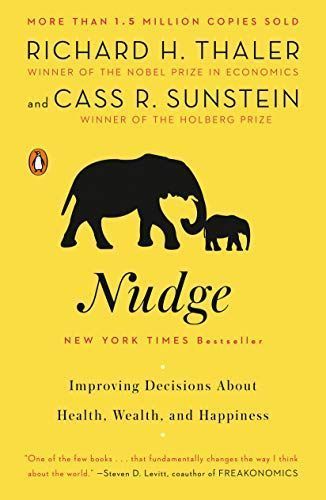
Nudge Wie man kluge Entscheidungen anstößt
Nudge – so heißt die Formel, mit der man andere dazu bewegt, die richtigen Entscheidungen zu treffen. Denn Menschen verhalten sich von Natur aus nicht rational. Nur mit einer Portion List können sie dazu gebracht werden, vernünftig zu handeln. Aber wie schafft man das, ohne sie zu bevormunden? Wie erreicht man zum Beispiel, dass sie sich um ihre Altervorsorge kümmern, umweltbewusst leben oder sich gesund ernähren? Darauf gibt Nudge die Antwort. Das Konzept hat bereits viele Entscheidungsträger überzeugt, darunter US-Präsident Barack Obama. Anschaulich und unterhaltsam präsentieren der Wirtschaftsnobelpreisträger Richard Thaler und Cass Sunstein einen neuen Ansatz der Verhaltensökonomie, der schon heute das Denken und Handeln in Politik und Wirtschaft prägt.
Reviews
Ayesha ahmed@ayeshaa
Mhairi Ramsay@mhairishouldwrite
Ahmed Kamal Ali@ahmadkd
Beau@hyggeligbo
Keven Wang@kevenwang
Colin Das@clocs
Lucas Coelho@coelholucas
Luca Stromann@l-s
Gigi V@barksandvino
Alvaro@alvaroaleman
Anush G@anush
Sameera@sameera
Tiffany@scientiffic
Verinda Kondzheli@verinda
James Paden@jamespaden
Courtney Woolery@courtneyskye
Billy Kwok@billykwok
Sabine Delorme@7o9
Reidar Hagtvedt@hagtvedt
J D@kdomasik
Lynn@lynncornelissen
Amy Soukup@asouka
Aarti Talwar@talwaraarti
Matthew Van Buskirk@mvb